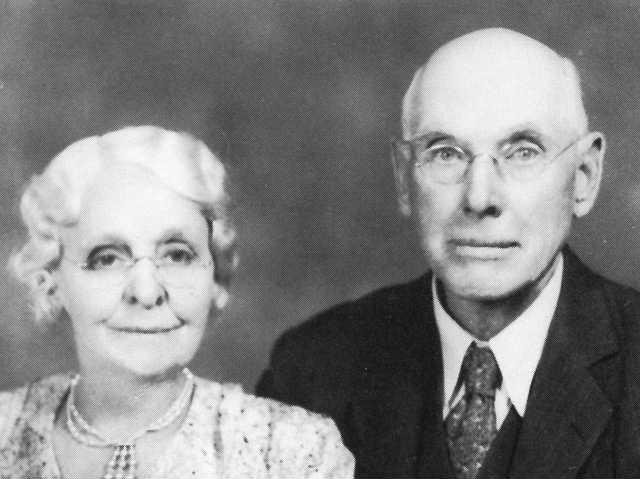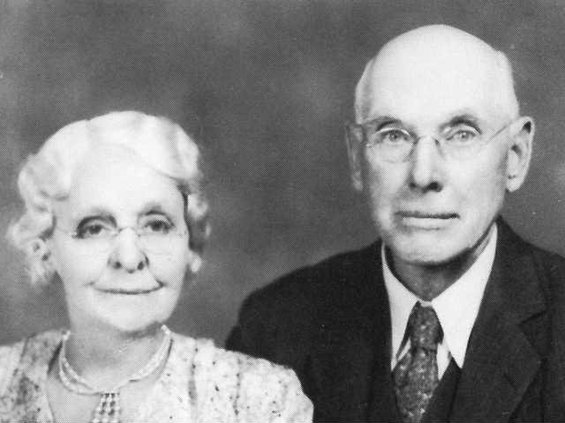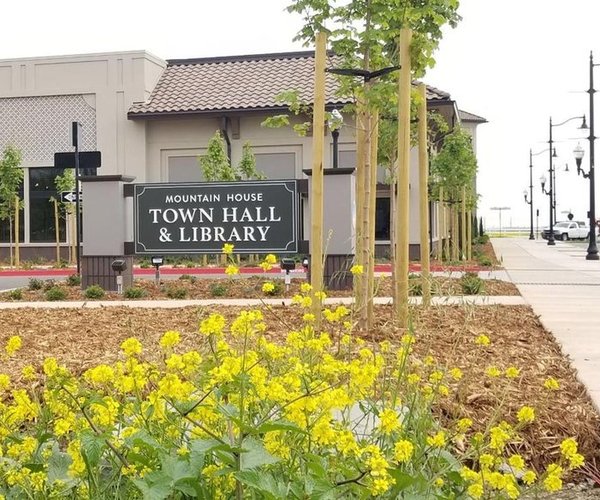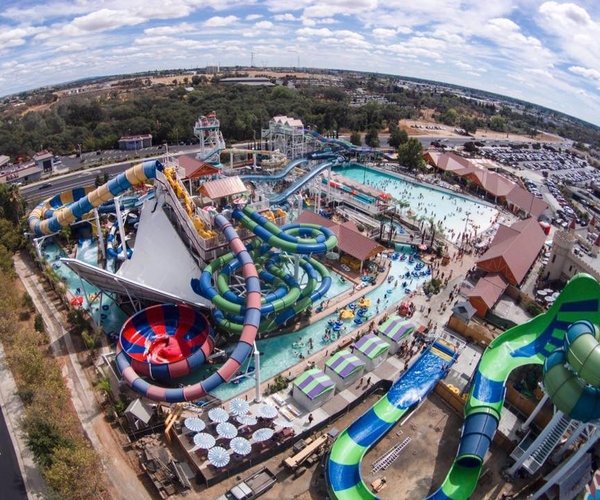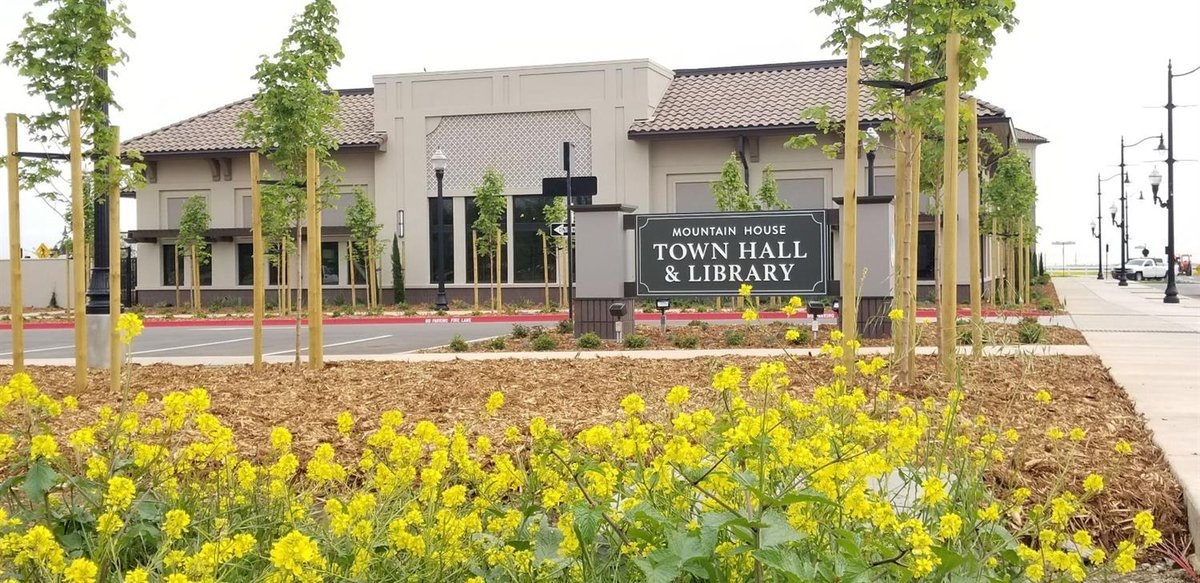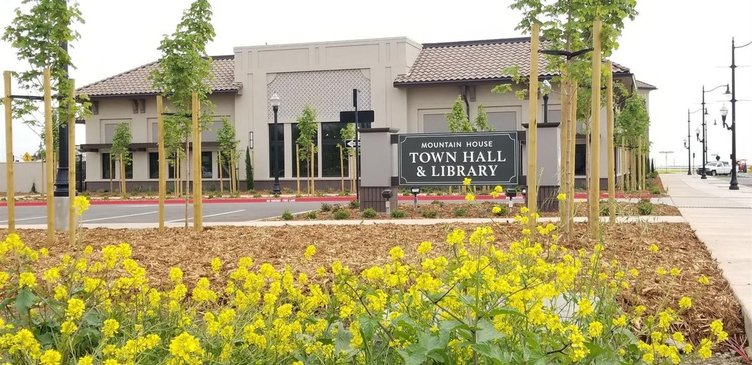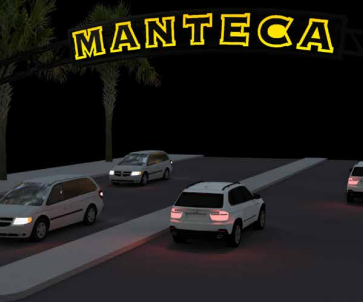Walter Woodward was a no nonsense kind of guy.
He’s not the type who would think of spending $10,000 or so on a Jacuzzi built for two with a 42-inch plasma TV screen. It wouldn’t exactly be a judicial use of money, since the dam that carries his name was built 115 years ago for $600,000.
In fact, Woodward and his contemporary — Joshua Cowell who is also known as the Father of Manteca — would be a bit puzzled at some of the hoop and hollering that’s going on today about water development in California and even in their beloved Manteca.
So to help bridge the generation gap between the days when everyone understood the value of water compared to today when it’s taken for granted, we decided to ask the man whose name lives on through Woodward Reservoir, Woodward Avenue, Woodward Park and Woodward School a few questions about modern-day water in Manteca.
QUESTION: “Thanks for joining us, Mr. Woodward.”
ANSWER: “My pleasure. You can call me Walter, though.”
Q: “What impresses you the most about water today in Manteca?”
A: “That’s easy. It’s the visionary thinking of building the South County Surface Water Treatment Project with a treatment plant at the base of Woodward Reservoir to serve Manteca, Tracy, Lathrop and Escalon. People need plenty of clean water to enjoy life. Surface water supplies are much more dependable than well water. We knew that back in my day when Manteca had plenty of what we called “blow sand.” People think dust storms kicked up by winds are bad today. They should have been around 115 years ago when the dust got moving. It was worse than fog for visibility.”
Q: “Surface water changed all that?”
A: “That it did, my son. It takes a lot of water for farming and for towns. You can’t keep pumping forever because you’ll deplete the underground source and have to go deeper and deeper. Plus even back then, we knew you could pump wells dry and it would take years if not decades for it to be replenished.”
Q: “There are some who say the surface treatment plant is growth inducive.”
A:”And their point? Sorry about being a tad sarcastic there, but it is always about growth whether it is growing more productive farmland or growing cities. Civilization can’t stand still. It’s not natural.”
Q: “I don’t think that’s their point. They’re worried about it hurting the environment.”
A “Ignorant.”
Q: “Pardon me?”
A: “They’re ignorant of California. Back when I arrived in Manteca with Fannie and our children in 1907, the Delta and the rivers that fed it went down to virtual trickles during late fall. Fish died. Wildlife had a rough time of it. It was tough on the trees and vegetation too. If it wasn’t for water projects, the Central Valley would be a virtual marshland in the winter and a desert in the summer. Heck, everyone forgets all of the Spanish explorers in 1776 that reached the top of Mt. Diablo in the spring and looked to the east and thought they had stumbled on to a great inland sea so they headed back to the coast. Manteca would be nothing but sand today if it wasn’t for surface irrigation water. Some of the people who are against growth said the surface water plant would hurt agriculture. Let me tell you, there would be no agriculture here today without surface water. The underground water would have been used up long ago. Besides, there isn’t much difference between urban uses and farm uses. They use the same amount of water per acre go ask the water planning experts.”
Q: “But you are a water expert, sir. You invented and patented a molded redwood flume to carry water, were part of a big pipe company you helped found and were one of five men elected to the South San Joaquin Irrigation District back in 1909 when Manteca voters decided it was time to take control of their own fate. You worked on laying out the district, you pushed for bringing water to every 40 acres instead of just the big farmers, and you even selected the site for the reservoir that carries your name.”
A: “I like to think of myself as a prosperity expert. Without a plentiful supply of water, you wouldn’t have dairies, orchards, row crops or even towns. Water is essential to everything in the economy and not just farming. There are those who think the high-tech industry is different. It isn’t. It requires lots of water to make the chips for computers, just like it takes a lot of water to make the potatoes for Granny Goose chips.”
Q: “Do you think Manteca’s water rates are too high with a base rate of $19.95 per month?”
A:”Too high? It’s a bargain. Look at what it provides. You’ve got water for indoor plumbing that beats the heck out of Sears catalogues and the outhouse. You’ve got water running from the tap for drinking, cooking and washing clothes. You can grow lawns, vegetables and trees at your house. You can wash your cars and clean off your patio and even fill a swimming pool, which is definitely better than trying to find a swimming hole. And when you look at what it cost Manteca 115 years ago to develop water, today’s price is a real bargain in proportion to all of the other things you need to spend money on for your families.”
Q: “Does anything about water development surprise you today, such as the California Aqueduct?”
A: “All of the technology doesn’t really surprise me. What does surprise me are people’s attitudes. Many think dams are horrible things. They should think about living with rationed water. That’s what will happen if we don’t develop adequate water storage sources and delivery systems.”
Q: “What about conservation?”
A: “That’s a given. The real culprits here aren’t the farmers. It’s the urban users. Farmers know how much water costs. They pay for everything they use. If they waste it or can’t find a way to reduce water costs through innovative methods such as drip systems for irrigating almond orchards, it costs them money out of their pocket.”
Q: “Just one more question. What is your biggest pet peeve about modern-day Manteca residents and their knowledge of water?”
A: “That’s simple to answer. Every once in a while when the government comes up with even tougher standards for water and lists what’s found in water, people go nuts. They say they want all of the impurities out of water because it should be natural. Water has always contained minerals and such. There are things you don’t want traces of in large portions in your water supply, but only a fool would think water was meant to be devoid of other substances. But then again, human nature is human nature. That’s what makes life interesting.”
Q. “Anything you’d like to add, sir.”
A. “Yes there is. Tell all of those people with automatic sprinkler systems if they’re too lazy to turn them off during the rainy season or adjust them that they’d better not cry about high water bills or even future rationing. Having sprinklers going in a rain storm in winter is water waste, pure and simple. It’s the equivalent of throwing money down the drain. The big difference is it isn’t their water only — it’s everyone’s.”
Q:”Thanks for your time, sir.”
A: “Any time I can be of service to educate people about water, it’s my pleasure.”
This column is the opinion of editor, Dennis Wyatt, and does not necessarily represent the opinions of The Bulletin or 209 Multimedia. He can be reached at dwyatt@mantecabulletin.com
